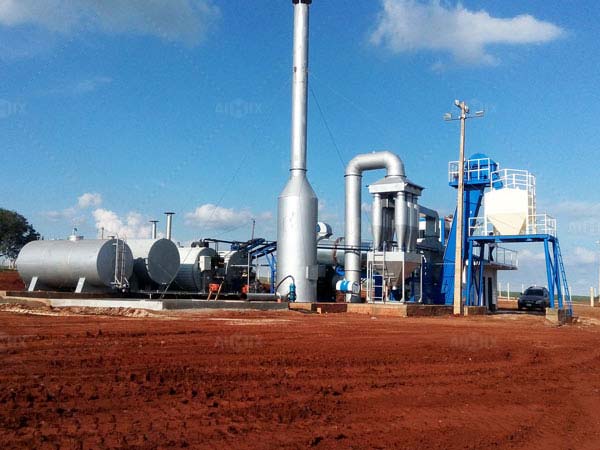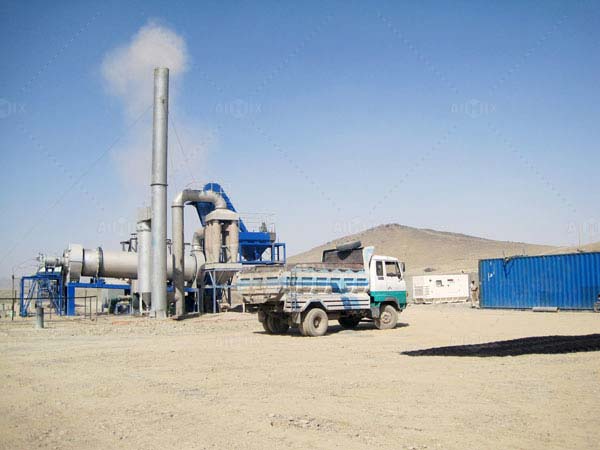Asphalt plants might not be the most common topic at your dinner table conversations, but these industrial facilities play a pivotal role in shaping the infrastructure landscape of Malaysia. In this article, we will delve into the complex world of asphalt plants and explore their significance, inner workings, and the Malaysian context.
The Asphalt Plant Landscape in Malaysia
The Malaysian Infrastructure Boom
Before we get our hands dirty with the technical aspects, it’s essential to understand the broader context. Malaysia has been experiencing an infrastructure boom in recent years, with extensive construction projects ranging from highways to airports. The success of these projects hinges on the production of high-quality asphalt, and that’s where asphalt plant equipment comes into play.

The Role of Asphalt Plants in Malaysia
Asphalt plants are the beating heart of Malaysia’s road construction industry. They are responsible for producing the asphalt mixtures used in road surfaces, ensuring durability and safety for commuters. The quality and efficiency of these plants are critical to the success of infrastructure projects.
Key Players and Manufacturers
To paint a complete picture of the asphalt plant landscape in Malaysia, we need to identify the key players and portable asphalt plant manufacturers in this field. Understanding who leads the market can provide insights into the industry’s quality standards and technological advancements.

The Inner Workings of Asphalt Plants
Components of an Asphalt Plant
Asphalt plants are intricate industrial facilities with multiple components. These include aggregate feeders and conveyors responsible for delivering raw materials, drying and mixing drums where the magic happens, asphalt storage tanks to store the final product, and sophisticated control systems to manage the entire process.
The Asphalt Production Process
The journey of asphalt production starts with aggregate handling and drying. Once the aggregates are ready, they are mixed and heated with liquid asphalt in the mixing and heating stage. The final product is stored in specialized tanks, ready to be loaded onto trucks, and transported to construction sites. Get the asphalt plant working process: https://aimixasphaltplant.com/tar-mixing-plant/.
Environmental Considerations and Regulations
In an age of increasing environmental awareness, asphalt plants in Malaysia must adhere to strict regulations and implement pollution control measures. We will explore the steps taken by the industry to minimize its environmental impact, from managing emissions to promoting sustainability.
Challenges and Innovations
Maintenance and Upkeep
Asphalt plants require consistent maintenance to operate efficiently. We’ll discuss the challenges faced by plant operators in ensuring seamless operations and the importance of proactive maintenance routines.
Sustainability and Green Asphalt Technologies
Sustainability is a growing concern in the asphalt industry. We’ll look at the innovative green technologies being adopted by asphalt plants in Malaysia to reduce their environmental footprint while maintaining the quality of the product. Learn more technologies in the AIMIX asphalt mixing plant through video:
Meeting Growing Demands for Quality Asphalt
The demand for quality asphalt is on the rise, driven by ambitious infrastructure projects. Asphalt plants are under pressure to meet these demands while maintaining their operational efficiency and quality standards.
Conclusion
As we conclude our journey into the world of asphalt plants in Malaysia, it’s clear that these industrial facilities are the unsung heroes behind the nation’s infrastructure development. Advancements in technology and a focus on sustainability are shaping the future of the industry, and Malaysia’s infrastructure boom is set to benefit from these innovations. The road ahead for asphalt plant malaysia is paved with challenges and opportunities, and their role remains critical in ensuring smooth sailing for the nation’s infrastructure projects.
